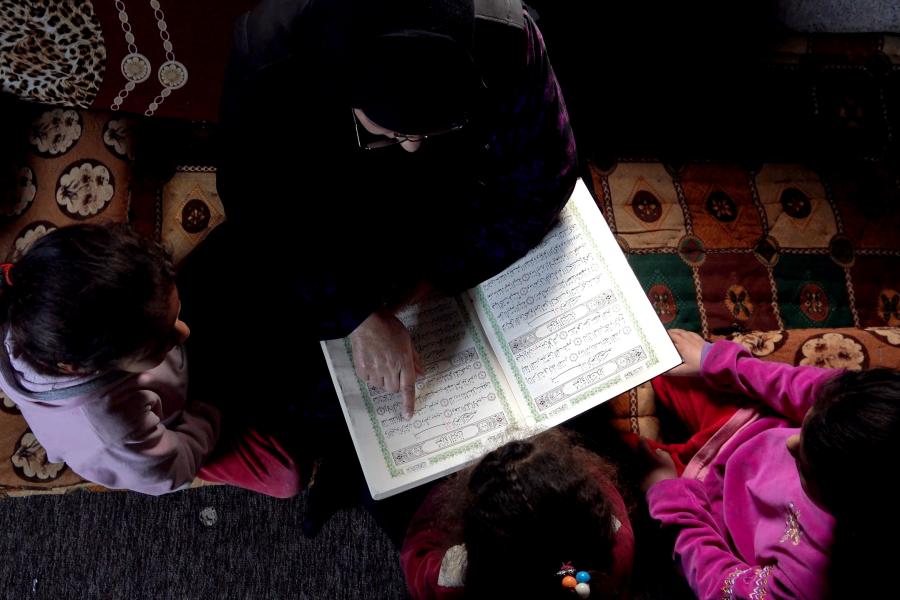2021 Year-end population figures
- Refugees and asylum seekers in neighbouring countries (including Türkiye): 263,000
- IDPs: 1.2 million
- IDP returns in 2021 alone: 121,000
- Stateless people: 47,000
2021 situation overview
In 2021, Iraq’s political and security situation remained fragmented and volatile. The economic downturn due to the fall in oil prices and the COVID-19 pandemic resulted in rising consumer prices and reduced livelihood opportunities.
Inside Iraq, the needs of some 1.2 million internally displaced people (IDPs) and 4.9 million IDP returnees remained high. Around 1 million IDPs lacked at least one type of civil documentation, impeding them from exercising their rights and accessing basic services. IDP families also faced eviction and were affected by the destruction and damage to property and critical infrastructure, the lack of opportunities and financial resources in areas of return.
UNHCR's work in Iraq continued the transition from an emergency response to a longer-term development approach. UNHCR focused on promoting inclusion in social protection schemes, strengthening access to national services and employment opportunities, identifying comprehensive protection and solutions strategies, and promoting the sustainability of IDP returns or local integration by fostering small-scale infrastructure projects through area-based programming for protection and solutions.
UNHCR worked closely with partners, including local authorities, to improve the living conditions of IDPs and returnees, including in response to large-scale camp closures. UNHCR also strengthened partnerships with development actors to better ensure the systematic inclusion of people of concern into national development plans and development-oriented programmes. UNHCR co-led and coordinated the protection, camp coordination and camp management, shelter and NFI clusters for the IDP response.
Close to $18 million in cash assistance was distributed to 306,000 Iraqis in need. 34,500 vulnerable families received core relief items to support their basic needs and mitigate harmful coping mechanisms. More than 5,500 essential secondary and tertiary health care referrals were supported, and legal assistance was provided to some 82,000 Iraqi refugees and IDPs. In response to the harsh winter conditions, some 161,000 Iraqis received cash assistance or core relief items to help them address seasonal needs such as heating.
UNHCR estimates that 38,000 Iraqis are in need of resettlement, which remains a vital durable solution and a critical demonstration of responsibility-sharing by the international community. In 2021, around 1,000 Iraqis departed for resettlement, down from 1,100 in 2020 and 2,100 in 2019.
UNHCR also provided protection and humanitarian assistance to an estimated 276,000 Iraqi refugees registered in Egypt, Jordan, Lebanon, Syria and Türkiye. UNHCR has adopted and advocated for an inclusive “one refugee” approach for all people of concern to UNHCR, which aims to eliminate differences in rights and services based on nationality.
